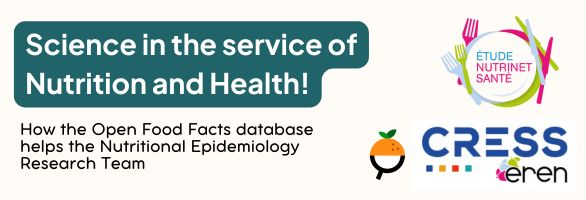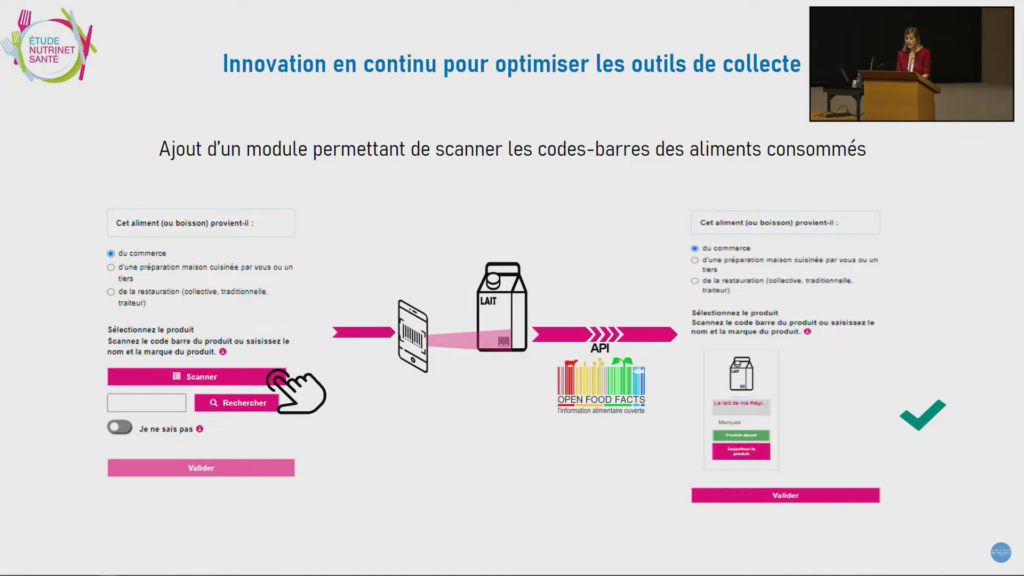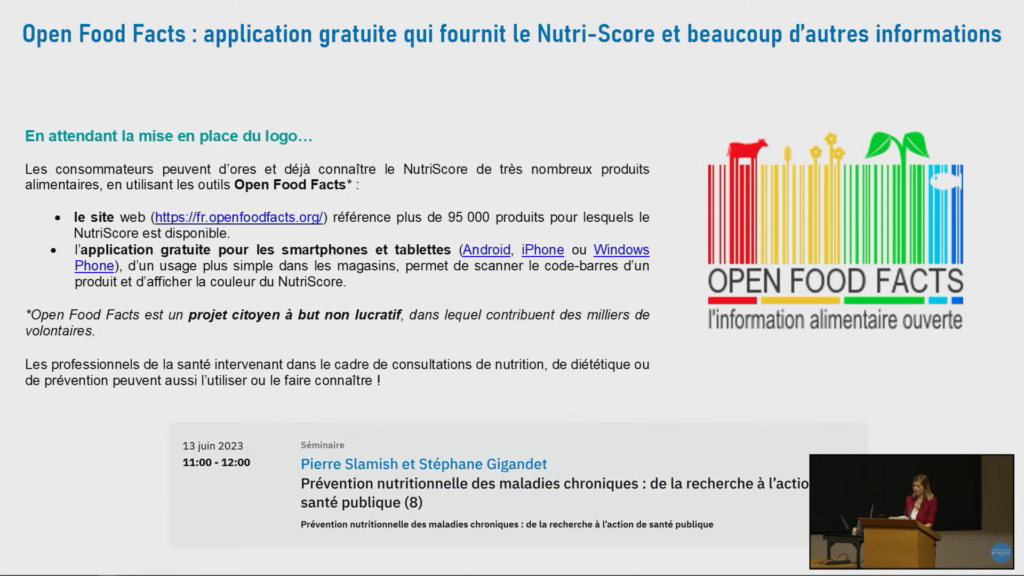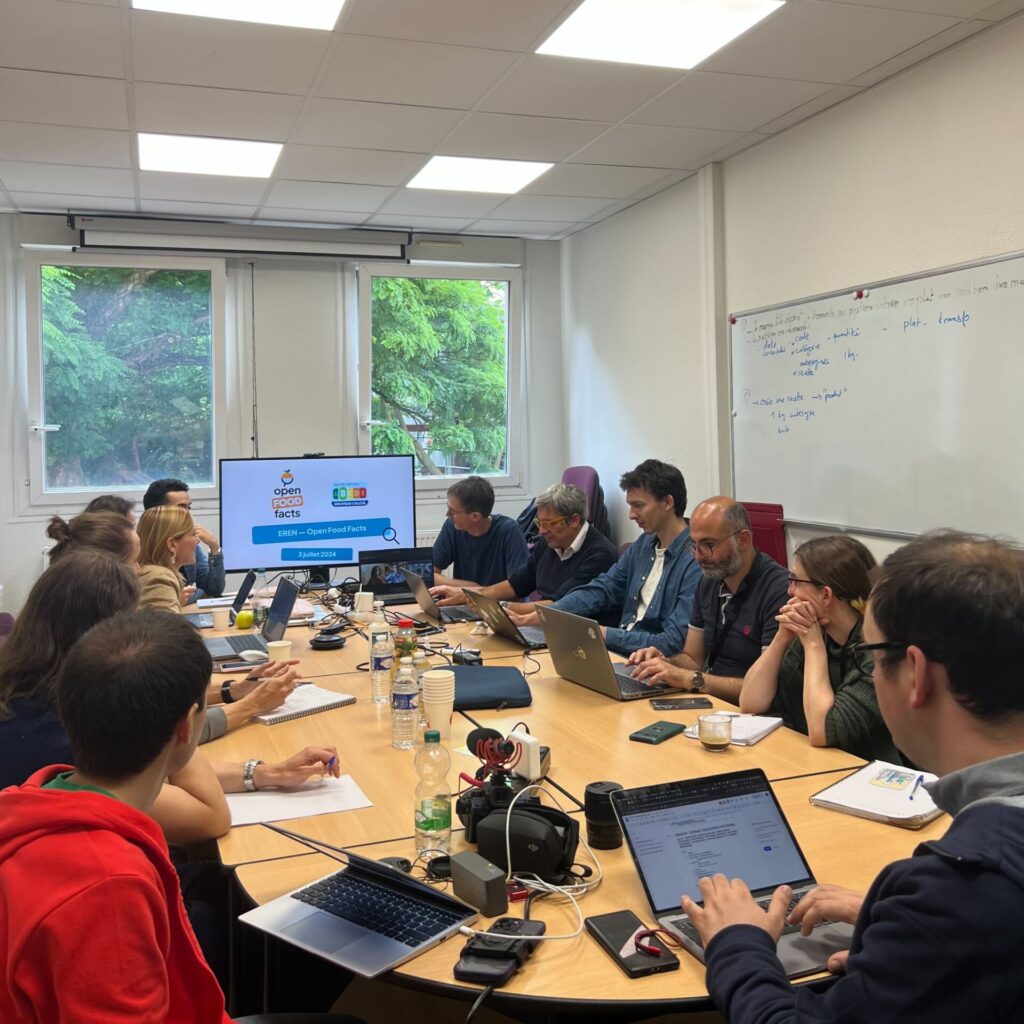
Science in the service of Nutrition and Health!

The NutriNet-Santé study is a large-scale epidemiological study launched in 2009 in France, aimed at analyzing the links between nutrition, health, and eating behaviors. It relies on the voluntary participation of tens of thousands of “NutriNet users – Nutrinauts” who regularly complete online questionnaires about their diet, lifestyle, and health.
The main objectives of NutriNet-Santé are:
✅ To identify the impact of nutrition on chronic diseases (cancers, cardiovascular diseases, obesity, etc.).
✅ To evaluate the effects of diets, including organic, additives, or ultra-processed foods.
✅ To provide recommendations to improve public health.
The results of this study have influenced several health policies, notably the implementation of the Nutri-Score.
The NutriNet-Santé study is conducted by the Nutritional Epidemiology Research Team (EREN), which is part of Inserm (National Institute of Health and Medical Research), INRAE (National Research Institute for Agriculture, Food and Environment), Sorbonne Paris Nord University, and Cnam (National Conservatory of Arts and Crafts).
It is headed by Dr. Mathilde Touvier, a researcher in nutritional epidemiology.
🙋 You can join the study as a Nutrinaut here: https://etude-nutrinet-sante.fr/

Historical partnership with Open Food Facts
Open Food Facts has been collaborating with EREN since 2014. Firstly, on the Nutri-Score (also created by EREN): Open Food Facts has been calculating and displaying the Nutri-Score for all products worldwide for over 10 years, and EREN uses the Open Food Facts database to verify the relevance of the score and its evolution in many countries.
Besides, the Open Food Facts database has also greatly facilitated the use of Nutrinet-Santé by Nutrinauts, and the exploitation of its results by researchers.
How does the Open Food Facts platform support the Nutrinet-Santé study?
The Nutrinet-Santé study uses the Open Food Facts database in two ways:
- Firstly by making it easier for Nutrinet users to enter the food they consume: a barcode scan allows the Nutrinet application to pre-fill information on the food consumed using data from the Open Food Facts API.
- Then by allowing researchers to find detailed information on the foods consumed on Open Food Facts: nutritional values, ingredients, additives, or even packaging materials in contact with the food, in order to be able to study their long-term impact on health


- Slides from Dr. Mathilde Touvier’s presentation at the Collège de France during her opening lecture as annual chair, “The role of nutrition in chronic disease prevention : state of scientific knowledge and recommendations” (FR) and in English https://www.college-de-france.fr/en/agenda/symposium/nutritional-determinants-of-health-recent-research-discoveries-and-translation-into-public-health/introduction
- Une présentation est également disponible par Stéphane et Pierre d’Open Food Facts, “Données, intelligence artificielle et technologies du futur”

Other joint projects in progress
Over the years, EREN has published numerous studies based on Nutrinet-Santé and Open Food Facts: on additives, organic foods, ultra-processed foods, etc. EREN and Open Food Facts are now working together on a new project, FOODCONTACT, to study the health impact of substances contained in packaging that can contaminate the food they contain.
Learn more about FOODCONTACT: https://presse.inserm.fr/impact-sante-linserm-lance-quatre-projets-de-rupture-pour-la-recherche-en-sante/69477/ (in French)

